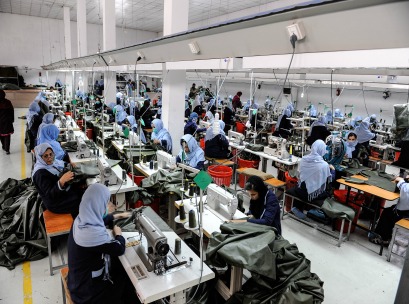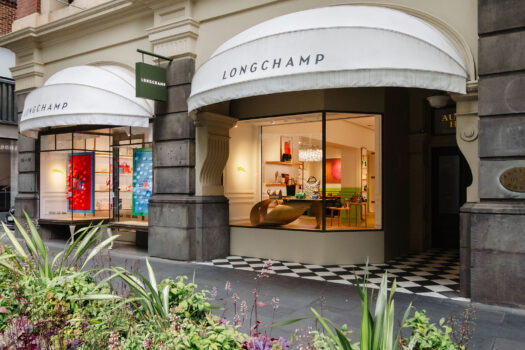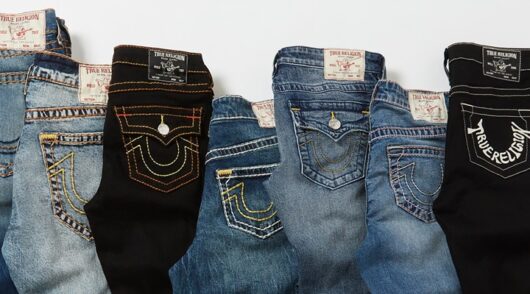 Aussie retailers continue to trail their multinational counterparts when it comes to mitigating the risk of worker exploitation within global supply chains, according to the latest Baptist World Aid ethical fashion report.
Aussie retailers continue to trail their multinational counterparts when it comes to mitigating the risk of worker exploitation within global supply chains, according to the latest Baptist World Aid ethical fashion report.
The report graded 106 apparel companies (or 330 brands) from A to F on their levels of visibility and across supply chains, alongside worker rights policies and practices.
Of the 15 brands awarded an A grade or higher, only three are headquartered in Australia and are all fairtrade.
Only one company, Mighty Good Undies, could prove that they were paying all their workers a living wage.
Of all companies surveyed, only seven per cent know where all their cotton comes from.
“Beyond niche ethical producers that consistently score the top grade, multinational companies like Patagonia and Zara are trumping Australian fashion brands,” said Gershon Nimbalker, Baptist World Aid Australia advocacy manager.
“There have been a number of Australian companies like Cotton On Group and Kmart that have made significant headway in this area, but 72 per cent of companies that scored at or below a D+ are headquartered here.”
Jacqui Hennessy, GM – risk & sustainability, Cotton On Group, said the environments in which its products are made and the materials used to make them are a critical part of ethical responsibility.
“Over the last five years, our partnership with BWA has allowed us to build on the strength of our existing ethical sourcing program, to sense check and continually enhance our programs with a focus on end-to-end mapping of our supply chain.
“2016 saw us continue the public disclosure of our supplier base, become a proud member of the Better Cotton Initiative and provide support to hundreds of farmers living in Kwale through our Kenya Cotton Program.
“We’re incredibly proud of what we’ve achieved to date but know this is a journey of continuous improvement and one that we are committed to for the long haul.”
Ally, Betts and Roger David scored an F for being non-responsive to the research and demonstrating no transparency.
Australian headquartered Valleygirl, TEMT and Lowes scored D+. Nimbalker said Australian companies can no longer excuse being behind the curve as more multinational brands enter the local market.
“Asia Pacific is home to more than 40 million fashion industry workers, yet for the vast majority wages remain at levels well below what is needed to lift themselves out of poverty leaving underpaid workers trapped in a cycle of poverty,” said Nimbalker.
The proportion of companies looking to improve wages continued to rise from 11 per cent in 2013 to 42 per cent this year. However, in most cases, wages were still below a living wage level and only applied to a portion of workers.
“Paying workers a living wage is achievable even for high volume, low cost operators, and it could transform the lives of millions while driving economic growth in their communities,” said Nimbalker.
Since 2013, there has been a 30 per cent improvement in companies tracing second tier suppliers, while two and a half times more companies (45 per cent) trace raw materials suppliers.
“It’s encouraging to see the improvements being made here but more than half of these brands still haven’t started trying to map where their raw materials are coming from,” said Nimbalker.
“Modern-day slavery is a reality. If companies can’t identify, or don’t care, where all their materials are made then how can they be sure workers aren’t being exploited or even enslaved?”
The number of companies publishing full supplier lists has risen from 16 per cent to 26 per cent since last year alone. APG & Co (who own Saba, JAG and Sportscraft), Big W and the Cotton On Group are among this group, while Nimbalker said increased openness from General Pants, Gorman, Seed Heritage, Factory X, and Brand Collective about their labour rights systems is commendable.
Baptist compiled the report after ten months of research, with 83 per cent of the companies assessed directly engaging in the process.
Access exclusive analysis, locked news and reports with Inside Retail Weekly. Subscribe today and get our premium print publication delivered to your door every week.





